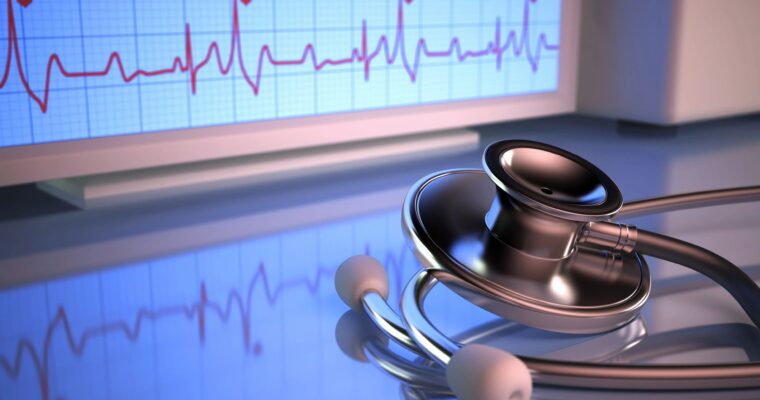The Benefits of Beets Hx
Dr. Claire Arcidiacono, ND
Everyone has heard about beets. Beet powder, beet chews and even beet juice! It’s everywhere you look! But what really are the benefits of using beet supplements? Why is the tart cherry in the Beets Hx? And perhaps most interesting of all questions is why use a powder and not the pills or chews that are available?
Beets are amazing for our heart health. Beets are high in a compound known as nitrates. (1) What this means is that according to studies beets are able to increase nitric oxide in the body. By increasing nitric oxide studies have found that beet root can significantly decrease both systolic and diastolic blood pressure. This is important since high blood pressure is a risk factor for many heart conditions. In addition to nitrates beets contain antioxidants that studies have found to be useful in fighting against atherosclerosis, which as we know is another risk factor for many heart related conditions. (2) Studies have also found that nitric oxide may improve cardiovascular health especially in older adults. While more research on this topic is needed what has been done so far is promising to say the least. (3) Studies have also found that the nitric oxide released from beets can help with lowering blood pressure in those with kidney disease. (4) Other studies have found that the nitric oxide in beets can help with the heart’s performance during exercise. (5) Lastly the nitric oxide in beets has been found in studies to help heart health in those with heart failure. (6) As you can see the nitric oxide in beets is very beneficial to our heart health.
Let’s move on for a moment from nitric oxide. In addition to the nitric oxide in beets there are antioxidants. Studies have found that the antioxidants in beets have anti-inflammatory properties that help decrease risk factors for cardiovascular disease. (1) One antioxidant found in beets that is currently being studied is a type called betalain. These have been found to help keep LDL from being oxidized. (7) It has also been found to lower the LDL as well as blood pressure. (8)
While it has been interesting to break down beets into their parts let’s take a look at some studies on just beets. Studies have found that using beets may help to lower blood pressure. (9) Studies have found beets to help lower cholesterol levels. (10) According to the Cleveland clinic beets are amazing for helping with high blood pressure and for those with heart disease. (11)
Beets Hx also includes tart cherry as well as the beetroot. Now I know what you’re thinking – tart cherry isn’t that for joints? Well yes it is! However studies have also found that tart cherry is good at helping to lower blood pressure as well as cholesterol. (12) Other studies indicate that tart cherry can help with blood pressure and cholesterol especially in older adults. (13) WebMD agrees that tart cherry is a great supplement that can help increase circulation as well as decrease inflammation, both of which are risk factors for many chronic heart conditions. (14)
Now I know I normally don’t take the time to talk about powders or pills but I wanted to do it in this blog in particular because beet supplements are currently so popular. Just watching a few minutes of TV will show you how many different delivery methods are available for beet supplements. So why a powder instead of a pill? Well for one there’s a limit to how much you can fit in a pill and still be able to swallow it. For many things that we take this is fine. However for some nutrients such as beets or whey protein you would have to take an inconvenient number of pills in order to get a therapeutic dose. Additionally, with powders they absorb right away thus they go to work very fast. (15) How about those gummies? Well to start with I want to ask a question. Do you think glorified candy is a good way to take any supplements? I personally prefer supplements that don’t double as candy. Many chewables have added ingredients such as sugar to “make it taste yummy”. That is one problem. The other problem is similar to pills in that there’s a limit to how much of a supplement you can fit. Just like with pills it’s just not reasonable to take enough to get a therapeutic dose. When you compare just these qualities of powders compared to chewables and pills it’s easy to understand why Invite uses a powder form for its beets. How can you use Beets Hx you might be asking yourself? Can I mix it in a smoothie? Absolutely yes! For heart health I recommend a smoothie with 1 scoop beets, 1 scoop Ribose Complex, 1 scoop of Whey or Plant protein and water or milk of choice. Another great choice is to make a smoothie with 1 scoop Beets Hx, 2 scoops of Cocoa Hx with 1 scoop protein and water or milk of choice. Beets Hx can also be mixed into yogurt or even applesauce. And don’t forget Beets Hx can be easily added to water.
Overall Beets Hx is a fantastic product for our heart health. It is one of those products that I frequently recommend for heart health.
Our next topic will be arrhythmia’s including atrial fibrillation and tachycardia!
Sources:
- https://www.heart.org/en/news/2023/02/22/give-me-a-beet-why-this-root-vegetable-should-be-on-your-plate
- https://www.ncbi.nlm.nih.gov/pmc/articles/PMC4425174/
-
https://www.ncbi.nlm.nih.gov/pmc/articles/PMC5707643/
- https://www.sciencedirect.com/science/article/abs/pii/S1089860316302440
- https://journals.physiology.org/doi/full/10.1152/ajpregu.00406.2012
- https://www.jacc.org/doi/abs/10.1016/j.jchf.2015.12.013
- https://pubmed.ncbi.nlm.nih.gov/15447903/
- https://www.ncbi.nlm.nih.gov/pmc/articles/PMC8565237/
- https://scholar.google.com/scholar_lookup?journal=Hypertension&title=Acute+blood+pressure+lowering,+vasoprotective,+and+antiplatelet+properties+of+dietary+nitrate+via+bioconversion+to+nitrite&volume=51&publication_year=2008&pages=784-790&pmid=18250365&doi=10.1161/HYPERTENSIONAHA.107.103523&
- https://scholar.google.com/scholar_lookup?journal=Free+Radical+Research&title=Betanin+inhibits+the+myeloperoxidase/nitrite%E2%80%90induced+oxidation+of+human+low%E2%80%90density+lipoproteins&volume=41&publication_year=2007&pages=335-341&pmid=17364963&doi=10.1080/10715760601038783&
- https://health.clevelandclinic.org/the-health-benefits-of-beets
- https://pubmed.ncbi.nlm.nih.gov/29862410/
- https://pubmed.ncbi.nlm.nih.gov/30678193/
- https://www.webmd.com/diet/tart-cherry-juice-good-for-you







